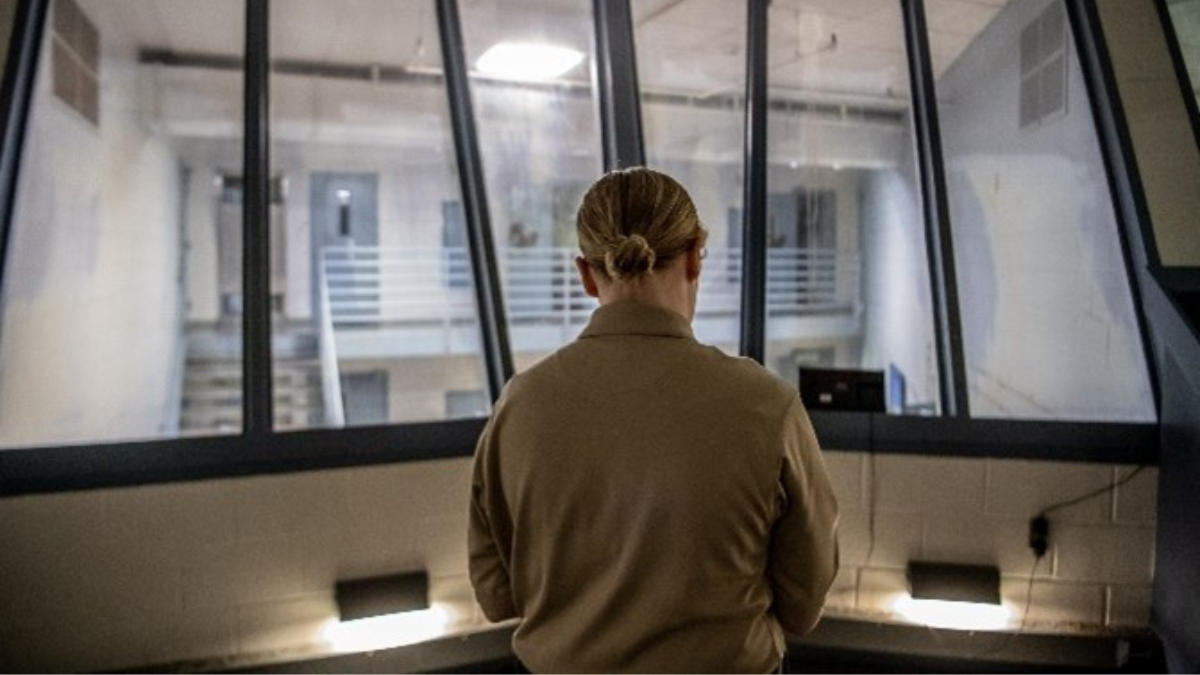The state’s developing plan to divert the mentally disabled from jails and state hospitals faces organizational and funding challenges.
Senate Bill 232, passed in the 2023 Regular Session, called for creating a multi-disciplinary study group to make recommendations regarding the diversion of persons with mental illness, developmental disabilities, cognitive disabilities, substance abuse problems, and other disabilities from the criminal justice system.
In an initial report the study group leaders presented on Tuesday to the interim Joint Standing Committee on the Judiciary, the key challenges were funding and expanding community treatment programs while balancing concerns for public safety. The study group chair, Dr. David Clayman, said the shock was “how deep and wide forensic services go into everything.”
“Child custody, abuse, neglect, adolescents are now being put in the criminal justice system because we have no place else to put them, the seriously mentally ill and the IDD group – intellectual and developmental disabilities – cognitive disabilities. So we have a pretty large mission,” Clayman said.
Study group leader Dr. Colleen Lillard, the statewide forensic clinical director, listed communication as one of many impediments to successful diversion.
“There is little program evaluation,” Lillard said. “We may have programs, and say, ‘Okay, we’re going to implement a program.’ Once the grant funding is gone, we often don’t have a path to sustainability. We also often don’t evaluate whether this program is actually working here in West Virginia. Another issue is that there’s very little to no data sharing between agencies.”
The independent group proposed creating a council of forensic mental health services to coordinate all the state services now operating without levels of sustainability. Lillard said one of the biggest issues is the lack of a continuum of care.
“We have inpatient hospitals,” Lillard said. “But we don’t have less restrictive environments at all levels of care. We have that issue with adult mental health. We have that issue with cognitive impairments, intellectual disabilities, traumatic brain injuries, and we have that problem with substance use disorders. We need to expand our continuum of care, including step downs, transitional living, crisis stabilization, and group homes.”
Clayman said a starting point for progress might be establishing statewide crisis stabilization centers, where law enforcement making an initial arrest would have alternatives to incarceration in jail or a state hospital.
“We can have somebody there that would not be admitted to the hospital,” Clayman said. “In 72 hours, we could have a treatment plan with our coordinated services and get them out and get them taken care of, and then track them.“
Committee member Sen. Mike Stuart, R-Kanawha, referred to a recent Wall Street Journal article noting that “it’s time to bring back asylums.”
“What happens to the significantly mentally impaired or mentally troubled person that goes back on the streets to potentially kill members of our community?” Stuart asked. “Where is there a public safety component here that you can assure us of?”
Lillard answered that the public safety component comes through the expansion of local forensic services.
“Forensic services become a path of least resistance, because we get them out of the criminal justice system,” she said. “We hold them in state hospitals and group homes and transitional facilities. What’s happening is they’re staying in our state psychiatric hospitals when they’re stable enough to be released to less restrictive environments, if we have the proper support and supervision in place.”
Clayman expounded on answering Stuart’s question by saying the group was not being “Pollyannaish” on protecting the public.
“We know that there’s a certain part of the population that cannot live in the community ever again,” Clayman said. “And we know that where we should have them housed is another question because of the cost of having somebody in the hospital. Asylums assume just a kind of warehousing. And there are several forces in the world like federal law and other things that force us to be doing other kinds of things. What we’re hoping to do to address your concern is to tell you by next year what we think can be done to meet your question of what to do with them.”
Study group member and Statewide Forensic Coordinator John Snyder told the committee real solutions will take time and funding.
“We have no idea right now how much money that’s going to take,” Snyder said. “But it does have to get back to the community because the police officers are frustrated.”
The group report noted in speaking about the acutely mentally ill in the jails, that the jails have a formulary and there’s only certain medications they are allowed to prescribe. Lillard said that is a huge hindrance for people with severe mental illness.
“For one thing, they don’t prescribe long acting injectables,” Hilliard said. “Medications that can be given by shot once a month to manage somebody’s mental illness.”
Clayman said the study group will keep working on finalizing a strategic diversion plan throughout 2024.
“We need to have these issues addressed,” Clayman said. “We have raised them, believe it or not, as part of our dilemma. We don’t want to come back here in a year and say guess what, here’s another chart. We may come back and say we’ve done the best we can, we don’t know what else to do.”
